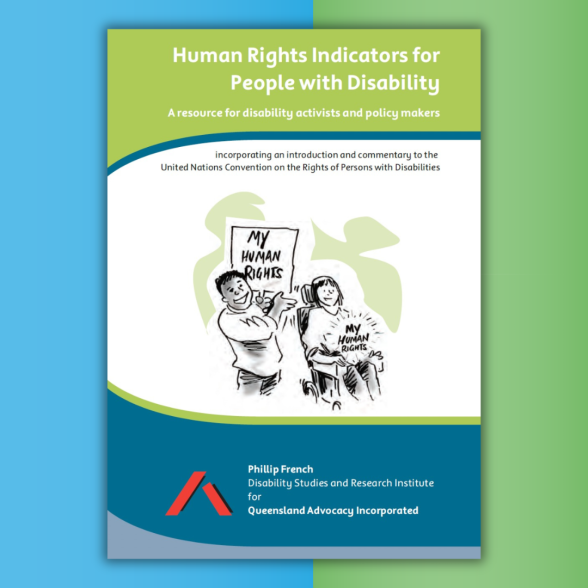Queensland Advocacy Incorporated (QAI) have produced an important publication which you can download here titled Human Rights Indicators for People with Disability: A resource for disability activists and policy makers. QAI is an independent, community-based, systems and legal advocacy organisation for persons with disability in Queensland, Australia, whose mission is to promote, protect and defend the fundamental needs and rights of the most vulnerable persons with disability in Queensland. It does this by engaging in systems advocacy directed to attitudinal, law and policy change.
The aim of the project was to highlight the relationship between the lived experience of Queenslanders living with disability and the international human rights standards accepted by the Australian Government. We feel collaboration to turn this into a global project could be extremely beneficial for all people with disabilities.
"The publication is an outcome of a multistage project that involved the development and testing of these human rights indicators for people with disabilities."
We know that people diagnosed with any type of dementia are people with acquired cognitive and other disabilities, hence this publication and these human rights indicators are also very relevant to their (our) human rights. This is supported by the World Health Organisation (WHO) having defined dementia in two tones, one the biomedical definition based on deficits, and two, as a condition causing disability.
"Dementia is a major cause of dependence and disability of older people globally." (WHO: 2015)
What people with dementia really need now, is not only to be included in the advocacy efforts of other organisations representing people with disabilities, but that everyone working to improve our post diagnostic support and experiences includes disability assessment and support, beyond the 'activities of daily living', and to include rehabilitation for all people with dementia. Policy, programs, services and supports, and advocacy must include dementia as a disability, or people with dementia will continue to be left behind in the 2030 Sustainable Development Goals!
DAI hosted the first ever Side Event at the 12th Conference of State Parties on the Convention on the Rights of Persons with Disabilities (COSP12) to represent dementia as a disability, which you can view here. Remarkably, perhaps even disturbingly, no other organisation had ever formally represented people with dementia in this way before!! You can read the Statement by Kate Swaffer, a co-founder of DAI and chair at that time here.
The time is now for our disability rights to be recognised and acknowledged, but more importantly, are harnessed, so that our human rights are no longer ignored.
Reminder you can get involved in research about dementia as a disability here.
